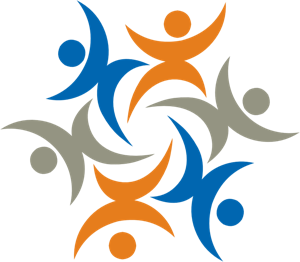
Trauma-Informed Neurofeedback Training Program
The Trauma Research Foundation is excited to be rolling out a truly comprehensive Trauma-Informed Neurofeedback Training Program, in conjunction with Sadar Psychological.
Part 1, “Foundations of Neurofeedback: Principles and Applications” launches October 2.
Registration is now open.
Part 2, “Clinical Applications of Neurofeedback: A Trauma-Informed Approach,” will open in 2025.
Interested to learn more about the Neurofeedback Training Program? View Angelika Sadar's information session at the video at the right!
Please click here to view the slides of the presentation.
Registration for Part 1: Foundations of Neurofeedback – Principles and Applications is now open! Please click here to register or sign up for our waitlist to learn more about the next cohort.
“Patients need help to change the habitual brain patterns created by trauma and its aftermath…Neurofeedback simply stabilizes the brain and increases resiliency, allowing us to develop more choices in how to respond”
– Dr. Bessel van der Kolk, The Body Keeps the Score
How does the two-part program work?
This comprehensive certification program unfolds in two distinct yet seamlessly connected stages. The first two steps – which make up the Foundations of Neurofeedback: Principles and Applications – lay the groundwork for anyone eager to unlock the potential of this powerful brain-training technique. Dive into the fundamental principles of neurofeedback, mastering assessment, protocol design, and effective client interaction. Hone your skills in interpreting brain signals and translating them into personalized interventions. Whether you envision integrating neurofeedback into your existing practice or are embarking on a dedicated career path, these initial stages equip you with the essential knowledge and confidence to excel.
The second stage – Clinical Applications of Neurofeedback: A Trauma-Informed Approach – introduces trauma-informed clinical applications of neurofeedback. This specialized training delves into the unique neurophysiological signatures of trauma, equipping you with advanced skills to support clients on their healing journeys. Learn cutting-edge protocols specifically designed to address trauma’s imprint on the brain, promoting emotional regulation, resilience, and post-traumatic growth. This final stage empowers you to become a beacon of hope for individuals seeking to reclaim their lives from the grip of trauma, making your neurofeedback practice truly transformative.
Throughout the course of the Trauma-Informed Neurofeedback Training Program, you will be building a portfolio to showcase your skills and expertise as you build them. This program is different from other Neurofeedback training programs, as our expert facilitators assess your progress along the way and provide individualized feedback on various activities and assessments.
Program components of part 1:
“Foundations of Neurofeedback: Principles and Applications”
Didactic Training
- Engage in 36 hours of pre-recorded course content approved for APA CEs.
- Assessment upon completion of all course modules
- Participate in 11 hours of live/virtual Community Meetings which include five 1-hour Q&A sessions, and three 2-hour practicum sessions where you are guided to use neurofeedback equipment remotely at your location
Throughout the Community Meetings, including Q&A’s and Practicums, you will explore:
- Orientation to NF, Neurophysiology & Neuroanatomy
- Instrumentation, Research Base for Neurofeedback
- Practicum – Beelab introduction | Entering a client and protocol | Initial hook up and impedances
- Psychopharm Considerations, Patient/Client Assessment
- Practicum – Mid-line assessments
- Developing Treatment Protocols, Treatment Implementation
- Practicum – Review of mid-line assessments and training process
- Current Trends, Ethics, What’s Next
Additional Components of Part 1:
- Includes 1 one-on-one mentorship hour
- Complete a Capstone project: Neurofeedback essential skills checklist
- Get enrolled in 3 trauma-informed trainings led by Dr. Bessel van der Kolk (8+ hours): “Understanding Trauma: Foundations”; “The Nature of Trauma: Developmental Neurobiology, Neuroimaging Research and Effective Intervention”; and “Neurobiology of Trauma Treatment: EMDR and New Research Directions”
Introduction to Trauma and Case Study Groups
After completing the didactic course and purchasing or renting their own equipment, students continue to Case Study Group (CSG) program which is facilitated by a leading trauma-specialized neurofeedback professional. The goal of the Case Study Group program is to provide the guidance needed to integrate neurofeedback into your clinical practice. The CSG consists of 10 two-hour meetings.
Expanded Case Study Group: 10 Meetings
Enrollment in Case Study Group (CSG) is for anyone who meets the following criteria:
- Must be licensed in a clinical or medical field.
- Must have completed the Didactic part of the TRF Neurofeedback Training Program OR must be a neurofeedback clinician who has completed the BCIA Neurofeedback Course elsewhere and wants to further their neurofeedback expertise in working with patients with trauma histories.
- Must have equipment that is FDA-cleared and compatible with BCIA Blueprint by the time CSG begins.
Meeting Descriptions:
Meeting 1-4: Equipment Practicums with ongoing discussions about training to include:
- 2-channel training
- Understanding/identification of artifacts
- Wide inhibits and down training vs. traditional inhibits (squash protocols)
- Have a plan for future training
Meetings 5-10: Case Study Demonstrations
- Presentation and discussions of individual cases using NG1 – TRF – Mental Status Exam. The presentation will also include an arousal and midline assessment. In the ensuing weeks, students will report responses to training and discuss and implement protocol changes.
Program components of part 2:
“Clinical Applications of Neurofeedback: A Trauma-Informed Approach”
Additional Modalities: Mastering Diverse Neurofeedback Tools for Trauma
Go beyond a single modality and equip yourself with a comprehensive toolbox for trauma-informed neurofeedback. Explore either Alpha Theta or Infra-Low Frequency (ILF) training to understand their distinct applications and how to strategically integrate them for optimal client impact.
Demystifying Trauma Protocols: Evidence-Based Interventions for Healing
Delve into the research-backed world of high-frequency training protocols specifically designed for trauma treatment. This course equips you with the knowledge and skills to confidently implement these powerful interventions, backed by the latest scientific evidence.
Trauma-Informed Case Study Groups: Collaborative Learning in Action
Immerse yourself in a 10-week intensive case study group dedicated to applying your skills to real-world trauma cases. Guided by a BCIA & TRF-approved Sadar mentor, you’ll analyze, discuss, and refine your approach in a supportive and collaborative environment.
Curated Resources for a Trauma-Informed Practice: Resources for Effective Trauma-Informed Practice
Access a curated selection of expert pre-recorded webinars from Sadar Psychological, TRF, and NRBS. These resources are specifically chosen to build your knowledge and skills in trauma-informed neurofeedback. Choose three impactful resources to delve into and share your key takeaways with the group.
Mentorship for Confident Application: Unleashing Your Trauma-Informed Expertise
Receive 10 hours of personalized one-on-one mentoring with a BCIA-approved trauma-focused neurofeedback expert. Deepen your understanding, address specific challenges, and gain invaluable insight to navigate the complexities of trauma treatment.
Registration for Part 2 – Clinical Applications of Neurofeedback: A Trauma-Informed Approach opens in 2025.
Enrollment is open to those who complete Part 1 – Foundations of Neurofeedback: Principles and Applications beginning in October 2024; those who have previously completed TRF’s Neurofeedback Training Program; and those who are currently practicing neurofeedback providers. Reach out to us if you think you may be eligible!
Value and Benefits of the Program
The TRF Trauma-Informed Neurofeedback Training Program partnered with Sadar Psychological to create a comprehensive and robust training in this field with exceptional features:
Free Equipment Loaners*
Our partners at Sadar Psychological have collaborated with an equipment provider so that you can borrow equipment free of charge while you complete the didactic portion for this course.
Renowned Instructors
Course modules are taught by world-renowned specialists in the field of neuromodulation, including psychologists and physicians. Case Study Group leaders and additional presenters are clinical professionals who have an abundance of experience working with neurofeedback and trauma.
BCIA Approved
This training program is run in conjunction with Sadar Psychological and Sports Center and is BCIA-accredited. It meets the requirements of the BCIA blueprint and counts towards 36 BCIA didactic hours. It is also approved for 36 APA CE credits.
Resource Library
Receive exclusive access to an extensive library of resources to enhance learning. Students will gain access to resources and materials developed by leading experts in the field that will support them in learning neurofeedback beyond what is included in the BCIA blueprint. In Part 2 of the Trauma-Informed Neurofeedback Training Program, students will have access to trauma-related neurofeedback resources.
Private Mentoring Session
Enrollees are offered 11 hours of one-on-one mentoring with experienced faculty when completing both parts of the program. This includes an individual private mentoring session with a field expert from our partners at Sadar Psychological & Sports Center.
Engage in the Most Comprenhensive Neurofeedback Training Program
By enrolling in this program, you will gain in-depth understanding of neurofeedback and its applications to trauma treatment.
Access to the didactic training course is granted for 6 months, enhancing learning.
*Equipment rental and purchasing options will be made available once you are enrolled in the course.
Loaner equipment for US and Canadian participants are available during the scheduled didactic portion of the training. Other countries are on a case-by-case basis and may incur a fee for shipping and related charges.
Program Overview
The Trauma Research Foundation recognizes Neurofeedback as one of the tools that can help to rewire a physiological system that has become dysregulated as a result of trauma. In the practice of Neurofeedback, trained clinicians connect a client to a computer interface that reads brain waves and helps clients change their brain waves while interacting with treatment programs. Although this method has been available since the early 1960s, the clinical work of Sebern Fisher, and the research of Drs. Ruth Lanius and Bessel van der Kolk have helped us to understand how Neurofeedback can help those who have suffered from trauma.
That is why we are dedicated to helping clinicians integrate leading-edge research on PTSD and developmental trauma with clinical practice through global training and education.
The methods taught in this program interface with other therapeutic modalities to provide a means to help clients calm and stabilize their nervous systems as they heal from trauma.
This high-level, comprehensive training program is designed for people who are licensed mental health or medical professionals*
*To purchase Neurofeedback equipment, you must be licensed in a clinical field.
The following information will guide you through what is technically required for this program. For further information, please email [email protected].
- Internet Access with Zoom capability and a camera.
- Loaner equipment is offered through BeeMedic for didactic portion of the course only. (BeeMedic requires a Windows Operating System. For more details, contact BeeMedic.) BeeMedic will provide a loaner laptop if your computer is not compatible.
- For the Case Study Group, students must purchase or lease their own equipment. This must be settled in time for your first CSG Meeting.
- Equipment is shipped to students from BeeMedic in time for the first practicum training session. BeeMedic will also provide assistance with setup.
- Equipment is available for the US and Canada and on a case by case basis for countries elsewhere.
Additional Terms and Conditions for TRF loaner/rental systems
Tuition for Part 1 of the Trauma-Informed Neurofeedback Training Program, “Foundations of Neurofeedback: Principles and Applications,” is $3,600. Payment plan options are available at checkout.
Pricing information on Part 2, “Clinical Applications of Neurofeedback: A Trauma-Informed Approach,” forthcoming.
We recommend that you allot a minimum of 6 hours per week to review the core materials based on the sections being covered in the community meeting.
Courses and Instruction
Payment: Payment must be received in full at least 24 hours before the start date of the course.
Asynchronous Cancellation Policy: Refunds will be provided if a request is submitted to [email protected] within 1 week of payment minus a $100 processing fee. If more than 10% of the course has been accessed, additional adjustments will be made accordingly. Refunds will not be honored if more than 50% of the course has been accessed, or if it is more than 30 days since purchase date. Refunds requested after 1 week of purchase are considered on a case by case basis.
Live Training Cancellation Policy: Full refunds will be provided if requests are submitted to [email protected] more than a month ahead of the instruction date. A 50% refund will be provided if the request is submitted less than a month and more than 24 hours before the first day of instruction. There are no refunds with less than 24 hours’ notice.
Grievances: If there are any concerns with the content of the course and an attendee wishes to file a grievance, they are asked to write to [email protected]. Upon receipt of the email expressing the complaint, the complainant will receive a written copy of the grievance procedure. Concerns will be addressed within 2 business days.
Mentorship & Professional Consultation
24 Hour Cancellation Policy: Sadar Psychological has a 24 business hour cancellation policy for individual services. If a mentee or practitioner-client cancels with greater than 24 business hours, they will receive a full refund or may reschedule. For no-shows or cancellations made with less than 24 business hours, there are no refunds.
Course Faculty

Bessel Van Der Kolk
Bessel A. van der Kolk M.D. is a pioneer clinician, researcher, and teacher in the area of posttraumatic stress. His work uniquely integrates developmental, neurobiological, psychodynamic, somatic, and interpersonal aspects of the impact of trauma and its treatment.
His #1 New York Times Science bestseller, The Body Keeps the Score: Brain, Mind, and Body in the Treatment of Trauma transform our understanding of traumatic stress, revealing how it literally rearranges the brain’s wiring—specifically areas dedicated to pleasure, engagement, control, and trust. He shows how these areas can be reactivated through innovative treatments including bodywork, psychodrama, mindfulness techniques, parts work, yoga, and neurofeedback, Dr. van der Kolk and his various collaborators have published extensively on the impact of trauma on development, such as dissociative problems, borderline personality and self-mutilation, cognitive development, memory, and the psychobiology of trauma. He has published over 150 peer-reviewed scientific articles on such diverse topics as neuroimaging, self-injury, memory, neurofeedback, Developmental Trauma, yoga, theater, and EMDR.
He is the founder of the Trauma Research Foundation, formerly the Trauma Center, in Boston, MA; past President of the International Society for Traumatic Stress Studies, and Professor of Psychiatry at Boston University Medical School. He regularly teaches at universities and hospitals around the world.

Angelika Y. Sadar
Angelika Y. Sadar, MA, BCN, BCB-HRV is a licensed psychologist who is board certified in neurofeedback and heart rate variability and is a BCIA approved mentor in neurofeedback. She has been in private practice in the greater Philadelphia area since 1985. Her work over the years has involved all age groups and clinical presentations. She is a treatment coordinator at Sadar Psychological and is a nationally recognized speaker providing education and offering training to other professionals in neurofeedback, biofeedback, and hypnosis. In 2018 she was invited to be part of BrainARC Switzerland and began developing evaluations protocols based on the research of HBImed, Switzerland. Presently, her clinical focus is on patients with complex/comorbid presentations and consulting with other psychologists, medical practitioners and other clinicians regarding EEG, neurofeedback and practice development. She is the executive director of the Northeast Region Biofeedback Society and a board member at large of The Association of Applied Psychophysiology and Biofeedback.
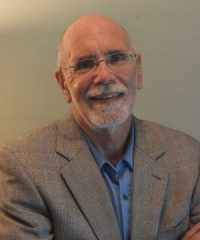
Mitchell Sadar
Mitchell Sadar is a licensed psychologist who was the director of a Pennsylvania Correctional Institution's inpatient program for over 15 years. In 1999 he was trained in neurofeedback and tried to bring this modality to the correctional population, but his attempts were not accepted by the Department of Corrections. He then resolved to dedicate his work to biofeedback and developed his private practice. Since 2015 he has been the president of the Northeast Region Biofeedback Society. His background in neuropsychology readily lent itself to learning how the EEG can facilitate neurofeedback training. In 2018, along with his practitioner wife, Angelika Sadar, he was invited to be part of BrainARC Switzerland and began developing evaluations and protocols based on the research of HBImed, Switzerland. Since that time, he has focused on developing assessments that include an analysis of EEG and ERPs to help to guide biofeedback/neurofeedback protocols but also include recommendations regarding psychotherapy and lifestyle changes.
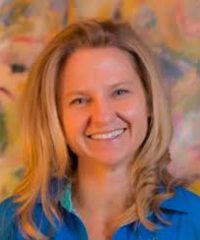
Andrea Meckley Kutyana
Andrea specializes in applied psychophysiology and neuroscience techniques to assess and train all aspects of human physiology, helping individuals optimize their functioning. Utilizing over 20 years of experience and training in EEG analysis, multiple biofeedback modalities, neuromodulation, relaxation techniques, and entrainment, she combines these evidence-based approaches to help individuals achieve their health and performance goals.
Education
Andrea holds a Ph.D. in Psychology with a specialty in Psychophysiology and a Master’s degree in Health Psychology. She is licensed by the NC Psychology Board as a Licensed Psychological Associate and Health Service Provider.
She is board certified in Biofeedback and Neurofeedback through the Biofeedback Certification International Alliance, certified in EEG-Based Imaging through the Society for the Advancement of Brain Analysis, certified as a Quantitative EEG Technologist through the Quantitative Electroencephalography Certification Board, and a certified Interactive Metronome provider. Andrea is a member of the Association for Applied Psychophysiology & Biofeedback and the International Society for Neurofeedback &
Research.
She has served as an instructor for EEG Spectrum International and for EEG Education and Research and provides mentoring to other Neurofeedback professionals.
She has also published several book chapters and articles and presents at scientific meetings.
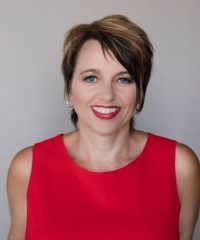
Gillian Drader
As a Counselling Professional I have provided therapeutic interventions for individuals and families for over twenty-five years in a variety of settings. My clinical focus is primarily in the area of complex trauma. I have provided therapy in the Greater Vancouver area as well as overseas in private practice, community based organizations and school districts. As my work and interests have evolved I have had the opportunity to be involved in various research projects which have furthered the application and understanding of some of the most effective trauma therapies that are available for individuals dealing with PTSD and Complex trauma. Along with seeing clients in my private practice, I have also enjoyed guest lecturing and teaching in local academic institutions and supervising Clinicians as well as Masters Level students.
I am committed to empowering my clients and the public in terms of providing skills and information that will allow them to live more fulfilling and effective lives. I have provided numerous workshops and educational forums to the general public as well as community organizations. As I continue to grow professionally I constantly seek to provide the individuals and groups that I collaborate with the most current and effective means by which they can live richer, healthier and more fulfilling lives post trauma.
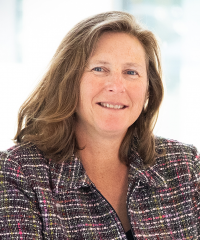
Linda Walker
From the time I emerged from college (the first time), prepared for a career in journalism, I felt driven to find ways to be part of the solution to the challenges I saw in the world.
Not quite satisfied with what I contributed as a writer, I pursued a master’s degree in human relations and counseling through University of Oklahoma and began my career as a helping professional in the mid 1990s. I later added post graduate certificates in addiction studies and school counseling, and a doctorate in psychology with an emphasis in psychophysiology from Saybrook University.
In my early work, I helped adults who had developmental disabilities find ways to live independently and experience life to their fullest. Since then, I’ve had the privilege to work with people from diverse backgrounds and circumstances seeking to find their balance, wellbeing and optimal function. Along the journey, I’ve spent time working in community mental health, juvenile justice, private practice and corporate health.
I added neurofeedback and biofeedback to my practice in my work within a residential treatment facility for juvenile delinquents in 2000. Assessment using qEEG came a short time thereafter.
As a counselor, I was seeing young adults who had one last chance at remediation. They had trauma, mental health and behavioral conditions, learning disorders, substance use problems, post concussive incidents and toxic chemical exposures — and usually all rolled up into a single young person! They had tried practically every medication and therapy in the book.
I began to question what more I could offer these young men and women to help them toward a better future.
That answer came in the form of neurofeedback and biofeedback. With a structured curriculum integrated into the residential treatment program, the number of restraint interventions decreased, medication need decreased and kids began reporting they made honor role in school — the first time for most of them. The program was documenting these changes and tracking data. Sadly the economic downturn spelled an end to the program in 2010.
Having witnessed the power of psychophysiological therapies to effect change in those I helped, I moved forward professionally within my own private practice. The past decade has indeed been busy!
I continued seeing children with challenges. In addition, I began to see adults and children with chronic disorders, such as pain and epilepsy. With an institute for performing arts nearby, I also began to expand my knowledge in working with optimal performers.
I have been privileged to direct assessment for a neurotherapy group that had clinics throughout Michigan, develop and teach biofeedback for Western Michigan University, and work with Bio-Medical, Thought Technology, and Biofeedback Federation to teach courses, mentor and develop software. I’ve had the opportunity to advise best practice in the field of psychophysiology and to participate in research efforts.
These accomplishments have been very gratifying and it’s a privilege to make a contribution to the advancement of helping therapies. That said, my heart still lives in the opportunity to work with others, to meet them where they are in their journey and to use the tools and skills I have to help them along their way. That goes for those whom I mentor and teach, as well as those who come to me as clients.

Shari Johansson
From the time I emerged from college (the first time), prepared for a career in journalism, I felt driven to find ways to be part of the solution to the challenges I saw in the world.
Not quite satisfied with what I contributed as a writer, I pursued a master’s degree in human relations and counseling through University of Oklahoma and began my career as a helping professional in the mid 1990s. I later added post graduate certificates in addiction studies and school counseling, and a doctorate in psychology with an emphasis in psychophysiology from Saybrook University.
In my early work, I helped adults who had developmental disabilities find ways to live independently and experience life to their fullest. Since then, I’ve had the privilege to work with people from diverse backgrounds and circumstances seeking to find their balance, wellbeing and optimal function. Along the journey, I’ve spent time working in community mental health, juvenile justice, private practice and corporate health.
I added neurofeedback and biofeedback to my practice in my work within a residential treatment facility for juvenile delinquents in 2000. Assessment using qEEG came a short time thereafter.
As a counselor, I was seeing young adults who had one last chance at remediation. They had trauma, mental health and behavioral conditions, learning disorders, substance use problems, post concussive incidents and toxic chemical exposures — and usually all rolled up into a single young person! They had tried practically every medication and therapy in the book.
I began to question what more I could offer these young men and women to help them toward a better future.
That answer came in the form of neurofeedback and biofeedback. With a structured curriculum integrated into the residential treatment program, the number of restraint interventions decreased, medication need decreased and kids began reporting they made honor role in school — the first time for most of them. The program was documenting these changes and tracking data. Sadly the economic downturn spelled an end to the program in 2010.
Having witnessed the power of psychophysiological therapies to effect change in those I helped, I moved forward professionally within my own private practice. The past decade has indeed been busy!
I continued seeing children with challenges. In addition, I began to see adults and children with chronic disorders, such as pain and epilepsy. With an institute for performing arts nearby, I also began to expand my knowledge in working with optimal performers.
I have been privileged to direct assessment for a neurotherapy group that had clinics throughout Michigan, develop and teach biofeedback for Western Michigan University, and work with Bio-Medical, Thought Technology, and Biofeedback Federation to teach courses, mentor and develop software. I’ve had the opportunity to advise best practice in the field of psychophysiology and to participate in research efforts.
These accomplishments have been very gratifying and it’s a privilege to make a contribution to the advancement of helping therapies. That said, my heart still lives in the opportunity to work with others, to meet them where they are in their journey and to use the tools and skills I have to help them along their way. That goes for those whom I mentor and teach, as well as those who come to me as clients.

Leon Morales Quezada
Dr. Leon Morales-Quezada M.D., MSc, mPH, Ph.D., BCN is a physician-scientist with experience in neurocognitive rehabilitation, noninvasive neuromodulation, applied psychophysiology, and technology development for neurological rehabilitation. Dr. Morales-Quezada received his MD degree from Universidad Autonoma de Aguascalientes and completed clinical training in emergency medicine and intensive care. He also completed a fellowship and Masters in Neuropsychology Rehabilitation at Touro College, a PhD in Cognitive Neurosciences from De Montfort University in Leicester UK, and a Master’s in Public Health from Harvard School of Public Health. Dr. Morales-Quezada was awarded with the prestigious Fellowship in Integrative Medicine from the Harvard-NIH program, Division of General Medicine, Beth Israel Deaconess Medical Center, and the National Center for Complementary and Integrative Health. He is currently a Research Faculty from Spaulding Rehabilitation Research Institute and fellow from the Ellen R. and Melvin J. Gordon Center for the Cure and Treatment of Paralysis. Dr. Morales-Quezada research interests focus on noninvasive neuromodulation, the placebo effect, and technology development applied in rehabilitation and behavioral medicine.

Robert “Rusty” P Turner
Robert Turner, MD - Robert “Rusty” P Turner, MD, MSCR, BCN, qEEG-D is the owner and CEO of Network Neurology in Charleston, South Carolina. He began this new endeavor with more than 16 years of faithful clinical work, teaching, and research at MUSC. He is a member of the Roper-St Francis Hospital System and an Associate Researcher with the MIND Research Institute in Irvine, California. Dr. Turner maintains a full-time clinical, teaching, and neurophysiology practice with patients referred from throughout the southeastern regions of the United States. While working full time at MUSC since 1997, he obtained a Master’s of Science degree in Clinical Research (epidemiology and biostatistics) in 2003 through the MUSC College of Graduate Studies. He has since then been actively involved in ongoing clinical research with collaborative studies in non-invasive neurostimulation and neuromodulation techniques, as well as advanced techniques of EEG source analysis.

Taylor Capozziello
Taylor graduated with her PhD in Psychology with a specialization in Psychophysiology in 2019. Prior to her graduate studies, she started as a bodyworker in 2002. Trained in a variety of modalities that include craniosacral and trigger point, she immediately recognized the advantage to her clients in having a wide range of techniques to address their individual concerns. This background pairs well with biofeedback work. She obtained her BA from San Francisco State University in psychology with emphasis in kinesiology and holistic health, which she added as a field of study prior to graduation.
The connection between the mind and the body continued to fascinate her, and in 2012, she returned to SFSU. In 2014, she was accepted in the doctoral program in psychology at Saybrook University. It was during this time she was introduced to neurofeedback and deepened her understanding of biofeedback.
She continues to enrich her training through classes weekly for biofeedback and neurofeedback. Biofeedback greatly assists in identifying underlying issues in targeted therapeutic strategies and enables her clients to participate more directly in their own healing.
Guest Faculty
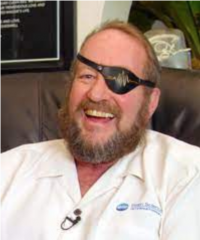
Jay Gunkelman
Jay Gunkelman, QEEGD Diplomate, is recognized as one of the top leaders in the field of EEG and QEEG, and has processed over 500,000 EEGs since 1972. He has served as president of The International Society for Neurofeedback and Research, as well as a board member and treasurer of the Association for Applied Psychophysiology and Biofeedback and is a past-president of the Biofeedback Society of California. Jay was the first EEG technologist to be certified in QEEG (1996) and was granted Diplomate status in 2002. He has conducted, published or participated in hundreds of research papers, articles, books and meetings internationally. He continues to lecture on EEG/Prandin at neuroscience meetings worldwide. He has co-authored the textbook on EEG artifacting (2001). Jay remains busy with current projects and publications related to his seminal paper on EEG Ambien (2005, Clinical Electroencephalography). He is co-founder and Chief Science Officer of Brain Science International and is a popular lecturer worldwide on the topic of QEEG and phenotype identification of neurological disorders.
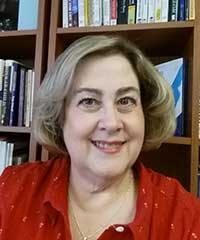
Joy Lunt
In 1993, I opened EEG Spectrum Northshore, in Northbrook, IL (just outside Chicago), my first Neurofeedback practice. My son had been diagnosed with ADD, but none of the approaches were helping. I stumbled upon information about Neurofeedback and since there were no providers in my area. I took my first EEG Neurofeedback training with Sue and Siegfried Othmer.
Since then I have studied with many of the real pioneers of this field, Dr, Barry Sterman, Dr, Joel Lubar, Jay Gunkelman, Michael and Lynda Thompson and many others. I have friends in the field, my colleagues, like Sebern Fisher, Bessel van der Kolk, John Nash and many others. Our field is wonderfully open and sharing of the knowledge we all find useful.
My original office was located in The Center on Deafness and most of my first experience was with the deaf children who attended school at this facility. It was an amazing opportunity and allowed for really good outcomes for many.
I am a Registered Nurse and I have worked in both medical and psychiatric hospital settings. My Northbrook practice remained open for 11 years and involved seeing progressively more complicated individuals. This practice offered many opportunities to see children, some with fairly simple presentations and those with co-morbid and more complicated difficulties such as Autism, Tourette’s disorder, sensory integration problems and a host of other learning disabilities. I worked with adopted children, both local and international. Many of them suffered from trauma. I also worked with adults who presented a variety of problems. Some of these were of a more physical nature, post-stroke, migraines, seizures and pain. Some presented with more mental health issues, anxiety, depression, OCD, dissociation and PTSD.
In 2003, I moved to Burbank, CA and opened my second practice, Brain Potential. I also worked with Q-Metrx analyzing data, preparing QEEG reports and creating protocol suggestions based on the QEEG results. Since moving to California, my practice has been focused on a more adult population. While my practice is still of a general nature, more and more of the people I see present with their own story of trauma. Thanks to the ever increasing sophistication of the equipment and approaches, we can help provide some much needed answers to people who are really suffering. My practice has always been limited to providing Neurofeedback so this has given me a great deal of experience and practice. I often work as part of a team with the other providers who may be involved in an individual’s care. I find this team approach to be very beneficial.
I have done many presentations and workshops over the years at our professional conferences (ISNR). I was invited to be the Keynote speaker at the professional neurofeedback organization in Australia in 2013 and also did a 2 day workshop on Assessment for them. I hosted an Internet radio show – Autism and Neurofeedback (www.autismone.org/radio) and spoke at some of the Autism One Conferences. I always enjoy presenting to my fellow professionals but I also enjoy the times I get to address the community directly. I have offered many presentations to small community groups to help educate the public about Neurofeedback.
Some of the publications I have been involved with:
- Johnstone, J. and Lunt, J. Use of Quantitative EEG to Predict Therapeutic Outcome in Neuropsychiatric Disorders. In: R. Coben & J.R. Evans (Eds).
- Neurofeedback and Neuromodulation Techniques and Applications. New York: Academic Press, to be published 2011. pp. 3-23.
- Johnstone, J., Gunkleman, J., and Lunt, J. Clinical Database Development: Characterization of EEG Phenotypes, Electroencephalography and Clinical Neuroscience, 2005 36 (2), 99-107.
I have also had the privilege of serving on a variety of Board of Directors:
- Uniting Families International Adoption 1998 - 2001
- ISNR Board of Directors, Secretary 2008 – 2011
- Biofeedback Society of California (BSC)
- ISNR Board of Directors President Elect, President, Past
President 2015 – 2018
Currently, my service to the field is working in the committee to create and get new CPT codes approved so that neurofeedback can be recognized and more consistently reimbursed by insurance companies.
I am an approved BCIA mentor for neurofeedback. I enjoy spending time helping others learn about this wonderful approach and the possibilities it offers.
And, in case you were wondering, my original motivation, my son is doing great. Neurofeedback played an important role in our lives!!
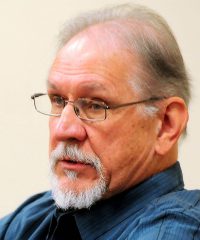
Ed Hamlin
Ed Hamlin, Ph.D., is the founder and clinical director of the Institute for Applied Neuroscience in Asheville, North Carolina, where he specializes in the application of neuroscience techniques to address a range of difficulties, including attention problems. Dr. Hamlin received his Ph.D. in clinical psychology from UNC-Chapel Hill and taught at UNC and Duke before returning to Asheville. Dr. Hamlin specializes in applied neuroscience techniques to help address attention problems, cognitive disorders, depression, anxiety, and problems associated with traumatic and acquired brain injuries. He is the lead instructor for EEG Education and Research and is on the faculty for Evidence-Based Neurotherapy of the Society for the Advancement of Brain Analysis. Dr. Hamlin is a recognized leader in the neurofeedback field and has trained thousands of clinicians to use neurofeedback. He is also a co-developer of Nervanix Insight.
Fall 2024 Course Schedule
Fall 2024 Course Timeline
Course access and orientation: October 2, 2024
First official community meeting: October 16, 2024
Fall 2024 Community Meeting Schedule
All Community Meetings take place from 12 – 1 pm EST.
First official community meeting:
- October 2, 2024: Course Access and Orientation
- October 16: First Official Community Meeting
- October 30
- November 13
- November 20
- December 4
- December 18
- January 8, 2025
- January 22
Trauma-Informed Neurofeedback Training Program
We invite you to participate in Part 1 of the Trauma-Informed Neurofeedback Training Program to start your journey with Neurofeedback today
foundations of Neurofeedback: Principles and applications registration
This includes:
- 36 hours of recorded lessons
- 8 Live Community Meetings
- 6 Hour Equipment Practicum
- 8 Hours of Trauma Training Lectures by Dr. Bessel van der Kolk
- 10 Hours of Case Study Group
- Private Mentoring Session
- Certificate of Completion in Foundations of Neurofeedback: Principles and Applications from the Trauma Research Foundation and Sadar Psychological
Foundations of Neurofeedback: Principles and Applications
Enrollment open now
$3,600 USD

This program is run in conjunction with Sadar Psychological
Courses and Instruction
Payment: Payment must be received in full at least 24 hours before the start date of the course.
Asynchronous Cancellation Policy: Refunds will be provided if a request is submitted to [email protected] within 1 week of payment minus a $100 processing fee. If more than 10% of the course has been accessed, additional adjustments will be made accordingly. Refunds will not be honored if more than 50% of the course has been accessed, or if it is more than 30 days since purchase date. Refunds requested after 1 week of purchase are considered on a case by case basis.
Live Training Cancellation Policy: Full refunds will be provided if requests are submitted to [email protected] more than a month ahead of the instruction date. A 50% refund will be provided if the request is submitted less than a month and more than 24 hours before the first day of instruction. There are no refunds with less than 24 hours’ notice.
Grievances: If there are any concerns with the content of the course and an attendee wishes to file a grievance, they are asked to write to [email protected]. Upon receipt of the email expressing the complaint, the complainant will receive a written copy of the grievance procedure. Concerns will be addressed within 2 business days.
Mentorship & Professional Consultation
24 Hour Cancellation Policy: Sadar Psychological has a 24 business hour cancellation policy for individual services. If a mentee or practitioner-client cancels with greater than 24 business hours, they will receive a full refund or may reschedule. For no-shows or cancellations made with less than 24 business hours, there are no refunds.
Enduring Material Learner Notification
Sadar Psychological and Sports Center
April 1, 2022 – April 1, 2025
Date of CE Release: April 1, 2022
Date of CE Expiration: April 1, 2025
Location: Online
Acknowledgement of Financial Commercial Support
No financial commercial support was received for this educational activity.
Acknowledgement of In-Kind Commercial Support
No in-kind commercial support was received for this educational activity.
Satisfactory Completion
Learners must listen to each self-directed audio recording while following along with the visual slides and complete an evaluation form to receive a certificate of completion. You must attend the entire webinar as partial credit is not available. For Enduring / On-Demand APA credits you also need to pass a posttest with a score of at least 80%. If you are seeking continuing education credit for a specialty not listed below, it is your responsibility to contact your licensing/certification board to determine course eligibility for your licensing/certification requirement.
Accreditation Statement
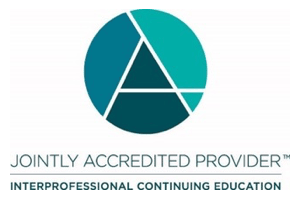 In support of improving patient care, this activity has been planned and implemented by Amedco LLC and Sadar Psychological and Sports Center. Amedco LLC is jointly accredited by the Accreditation Council for Continuing Medical Education (ACCME), the Accreditation Council for Pharmacy Education (ACPE), and the American Nurses Credentialing Center (ANCC), to provide continuing education for the healthcare team.
In support of improving patient care, this activity has been planned and implemented by Amedco LLC and Sadar Psychological and Sports Center. Amedco LLC is jointly accredited by the Accreditation Council for Continuing Medical Education (ACCME), the Accreditation Council for Pharmacy Education (ACPE), and the American Nurses Credentialing Center (ANCC), to provide continuing education for the healthcare team.
Psychologists (APA) Credit Designation
 This course is co-sponsored by Amedco and Sadar Psychological and Sports Center. Amedco is approved by the American Psychological Association to sponsor continuing education for psychologists. Amedco maintains responsibility for this program and its content. 36.00 hours.
This course is co-sponsored by Amedco and Sadar Psychological and Sports Center. Amedco is approved by the American Psychological Association to sponsor continuing education for psychologists. Amedco maintains responsibility for this program and its content. 36.00 hours.
The following state boards accept courses from APA providers for Counselors: AK, AL, AR, AZ, CA, CO, CT, DC, DE, FL, GA, HI, IA, ID, IL, IN, KS, KY, MD, ME, MO, NC, ND, NH, NE, NJ, NM, NV, OK*, OR, PA, RI, SC, SD, TN, TX, UT, VA, WI, WY
MI: No CE requirements
The following state boards accept courses from APA providers for MFTs: AK, AR, AZ, CA, CO, CT, DE, FL, GA, IA, ID, IN, KS, MD, ME, MO, NE, NC, NH, NJ, NM, NV, OK*, OR, PA, RI, SC, SD, TN, TX, UT, VA, WA, WI, WY
The following state boards accept courses from APA providers for Addictions Professionals: AK, AR, CO, CT, DC, DE, GA, IA, IN, KS, LA, MD, MO, MT, NC, ND, NE, NJ, NM, NY (outstate held), OK*, OR, SC, UT, WA, WI, WY
* OK accepts APA credit for live, in-person activities. For all ethics and/or online courses, an application is required.
MA / MFTs: Participants can self-submit courses not approved by the MAMFT board for review.
The following state boards accept courses from APA providers for Social Workers: AK, AR, AZ, CA, CO, DE, FL, GA, ID, IN, KY, ME, MN, MO, NE, NH, NM, OR, PA, VT, WI, WY
New York Board for Psychology (NY PSY)
Amedco is recognized by the New York State Education Department’s State Board for Psychology as an approved provider of continuing education for licensed psychologists #PSY-0031. 36.00 hours.
Objectives – After Attending This Program You Should Be Able To
-
Describe how neurofeedback can help facilitate the process of psychotherapy.
-
Demonstrate a fundamental understanding of how the functioning of the brain relates to our emotions and behaviors.
-
Develop a foundation upon which to continue to learn about the process of neurofeedback.
Disclosure of Conflict of Interest
The following table of disclosure information is provided to learners and contains the relevant financial relationships that each individual in a position to control the content disclosed to Amedco. All of these relationships were treated as a conflict of interest, and have been resolved. (C7 SCS 6.1-‐6.2, 6.5)
All individuals in a position to control the content of CE are listed below.
|
First |
Last |
Commercial Interest: Relationship |
|
Linda |
Dieffenbach |
NA |
|
Leon |
Morales-Quezada |
NA |
|
Angelika |
Sadar |
NA |
|
Mitchell |
Sadar |
NA |
|
Jo |
Shultz |
NA |
|
Robert |
Turner |
NA |